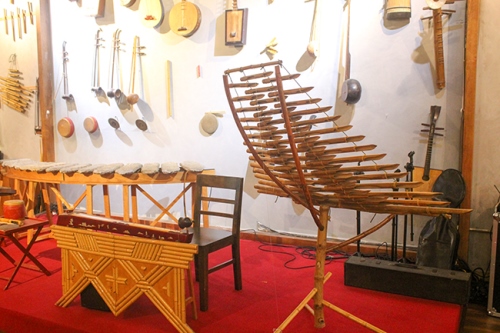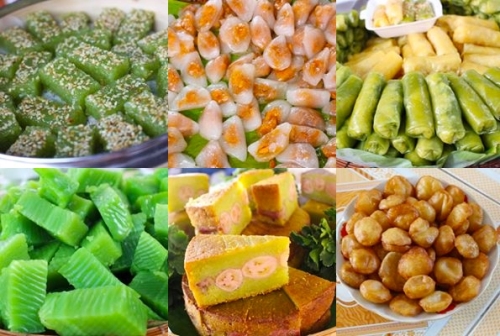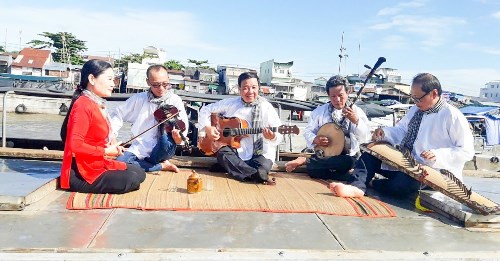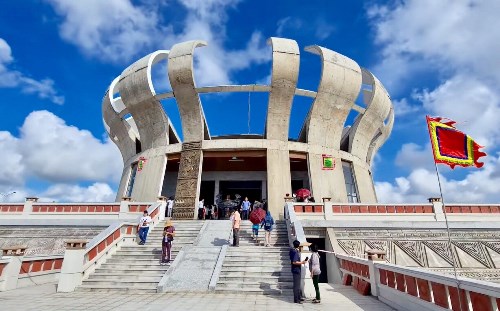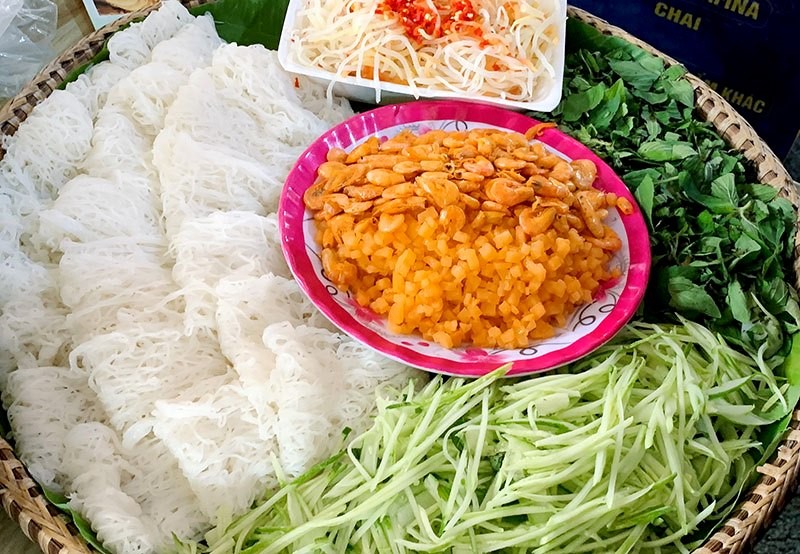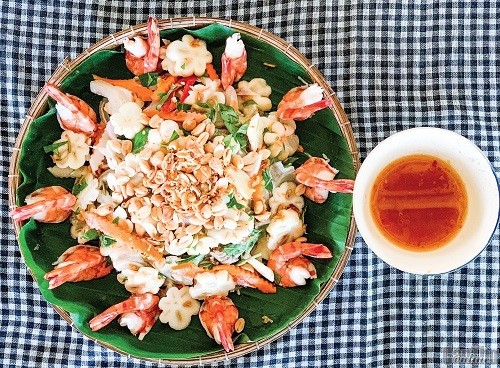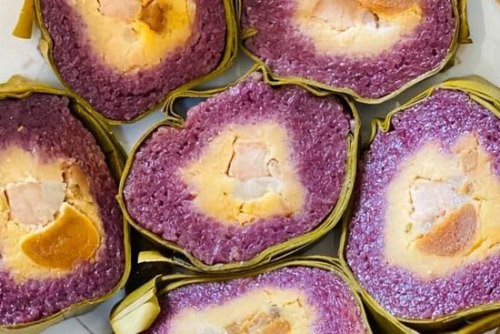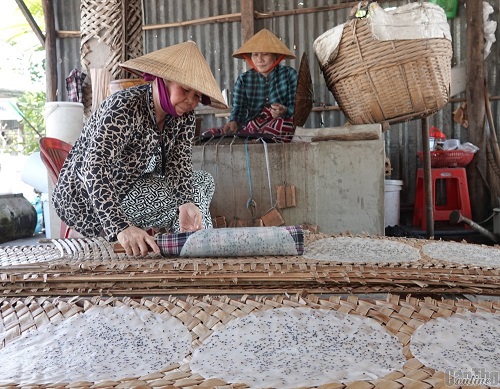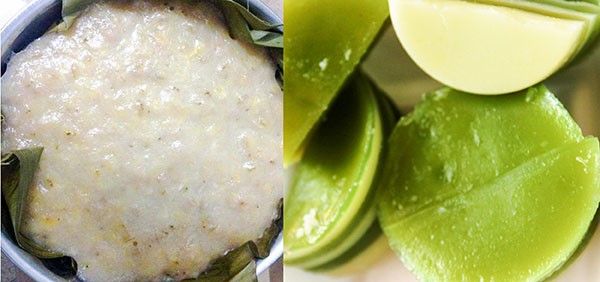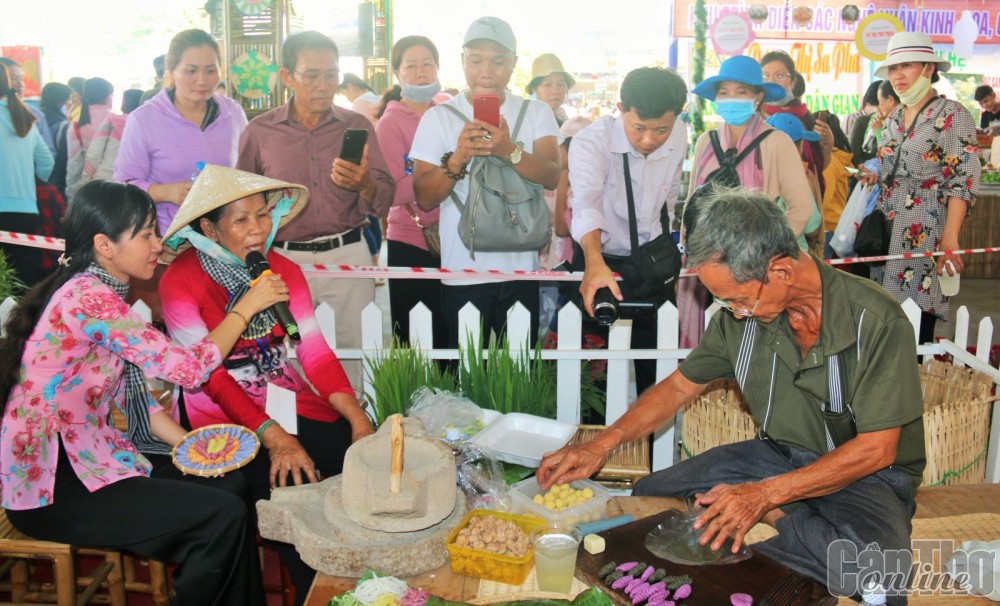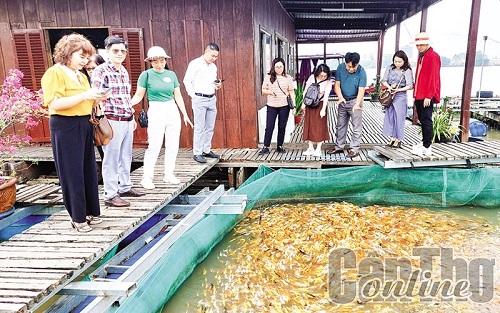
Identifying the River Culture of the Mekong Delta Region
Apart from the two major rivers, the Tien and Hau Rivers, and their tributaries, the Mekong Delta Region possesses many other big rivers like the My Thanh, Ganh Hao, Cai Lon, Cai Be, Ong Doc, Bay Hap, and more, with a total length of approximately 26,550 kilometers. Furthermore, this region is rich in an intricate canal system, with notable ones such as Vinh Te, Rach Gia - Long Xuyen, Cai San, Xa No, Chac Bang, Quan Lo - Phung Hiep, Cho Gao, and more. In the study on "The Relationship between People and the Aquatic Environment in the Mekong Delta Region," Dr. Nguyen Trong Nhan (FSSH, Can Tho University) points out that the aquatic environment profoundly influences various aspects of the residents' lives here. It has cultivated an open, vibrant, and carefree character. Moreover, the aquatic environment provides abundant sources of food, from fish and shrimp to vegetables, thus giving rise to a distinctive local culinary culture. The people of the Mekong Delta Region are known for their diverse modes of transportation on the water, adapted to the various aquatic terrains. There are many recreational activities in the Mekong Delta Region that are rooted in its aquatic environment, such as boat races and folk singing on the boat.
Dr. Ta Duc Tu (FSSH, Can Tho University) summarizes that the aquatic character is a unique feature of the people of the Southwestern region, derived from their distinctive living environment. Nature offers many advantages but also significant challenges. Over time, the residents of the Mekong Delta Region have adapted, learned from the rivers, and exploited the natural resources from the water. "For instance, they set fish traps in shallower canals. In the small creeks, they use nets, fishing lines, and even handheld nets to catch fish," Dr. Ta Duc Tu describes. Furthermore, from the richness of fish and shrimp in the aquatic environment, the residents have creatively crafted unique dishes, using fresh ingredients for items like fish sauce and dried products.
In the context of folk beliefs, Mr. Nguyen Thanh Loi (Central Pedagogical College of Ho Chi Minh City) has assessed, through practical research, that most of the shrines and spiritual temples in the Mekong Delta Region used to face the rivers and canals. People in this region have customs of worshiping deities such as Ba Cau, Ba Thuy Long, and Dai Can, as well as revered animals associated with the water, such as Otter, Crocodile, and Whale. The author also delves into the rituals, festivals, and customs related to the aquatic environment. These include the ritual of offering “Viec le” (ancestor anniversary), the tradition of releasing banana stem rafts into the river, and the ceremonies held at shrines, temples, and square houses, “Tong on” tradition (Send the pestilence away).
In terms of local language and expressions in the Mekong Delta Region, Mr. Tran Minh Thuong (Nga Nam High School, Soc Trang Province) affirms that among the words related to locations and places in the Hau Giang region, those associated with the aquatic landscape constitute a significant proportion and appear more frequently. These terms include 'vam' (three-way river), 'xeo' (creek), 'song' (River), 'con' (Islet), 'kenh', 'rach' (canal), 'tac' (short way), 'bau' (pond), as well as place names like Nga Tu (crossroad), Nga Nam (five-way crossroad), Nga Sau (six-way crossroad), Nga Bay (seven-way crossroad), Nuoc Man (salt water), Nuoc Ngot (freshwater), Nuoc Trong (clear water), Nuoc Dục (muddy water), which are as familiar as the daily breath of the local people.
Sustainable Conservation Linked to Tourism Development.
It can be said that floating markets and the system of floating islets represent the most recognizable and emblematic cultural values of the Mekong Delta Region. These two forms of aquatic culture are also utilized as resources in the exploitation and development of tourism, creating unique products. The challenge lies in how to sustainably preserve the indigenous cultural values in the urbanization and tourism development processes.

The imprint of the aquatic environment is clearly evident in the means of transportation, such as boats, canoes, and boats used by the people of the Mekong Delta Region.
Research on this matter, focusing on the specific case of Cai Rang Floating Market (Can Tho City), as presented by Dao Vu Huong Giang, a researcher at the Faculty of Social Sciences and Humanities, Can Tho University, suggests that Cai Rang Floating Market has been subjected to numerous influences, leading to its narrowing and a decrease in the number of boats engaged in trade. There are several reasons for this, including changes in trade demands, the urbanization process, and a lack of attractive tourism products. The author emphasizes the economic interests derived from the current tourism development in Cai Rang Floating Market are not evenly distributed. The research reveals that despite a significant number of tourists, tourism does not bring substantial revenue to local businesses or the community. Instead, the majority of the spending goes to tourism companies. Furthermore, there are currently no regulations governing the management of this specific type of market, which presents challenges in terms of investment, preservation, and development.
Research on sustainable tourism development in Tan Loc islet (Thot Not District, Can Tho City), conducted by Ms. Nguyen Thi Huynh Phuong (Faculty of Social Sciences and Humanities, Can Tho University), has proposed solutions for sustainable economic development in tourism. The author emphasizes the importance of collaboration and linkages between local tourist spots and other tourist destinations to establish a network of tourism routes, contributing to the creation of tourism products. It is essential to provide guidance and training in tourism-related skills, such as food processing, communication, and the creation of an ecological environment, for the local residents. This way, Tan Loc islet can be transformed into a distinctive cultural space surrounded by rivers and canals. In promoting and explaining tourism, it is necessary to incorporate cultural aspects, especially the culture of the waterways, so that visitors can understand and experience them.
According to Mr. Tran Minh Thuong (Long Thoi High School, Ho Chi Minh City), the preservation of the aquatic culture primarily requires ensuring the security of water sources. Climate change, rising sea levels, and subjective factors from human activities are negatively impacting the water resources of the Mekong Delta Region. Therefore, strategic and macro-level solutions are needed for this issue. Emphasizing that the development of tourism linked to the culture of the waterways is a scientifically grounded, practical approach that aligns with the long-term and sustainable development strategy of the region, the author proposes solutions to promote the cultural values of the waterways in green tourism, agricultural tourism, and community tourism. This includes regional and local tourism planning, prioritizing the development of river transportation systems, and creating tourism products that establish a tourism brand associated with the unique culture and characteristics of the waterways in each area.
|
Proposal for the Establishment of a River Culture Museum This proposal was put forward by Associate Professor Dr. Dao Ngoc Canh, the head of the scientific project titled "Preservation and Promotion of the Cultural Values of the Mekong Delta Region in the New Context," presented at this seminar. According to him, the waterway culture of the Mekong Delta Region deserves to have its own museum. There are numerous cultural values associated with the natural environment of the downstream of the Mekong River, one of the world's grand rivers and a leading one in Southeast Asia. Alongside this are the cultural values of the waterways, including various types of boats, livelihoods linked to the waterways, festivals, folk beliefs, and the local cuisine of the river region. A River Culture Museum would become an attractive destination for both domestic and international tourists, thereby creating a demand for tourists to explore specific tourist destinations within the Mekong Delta Region. |
Source: Can Tho News - Translated by Hoang Dat





